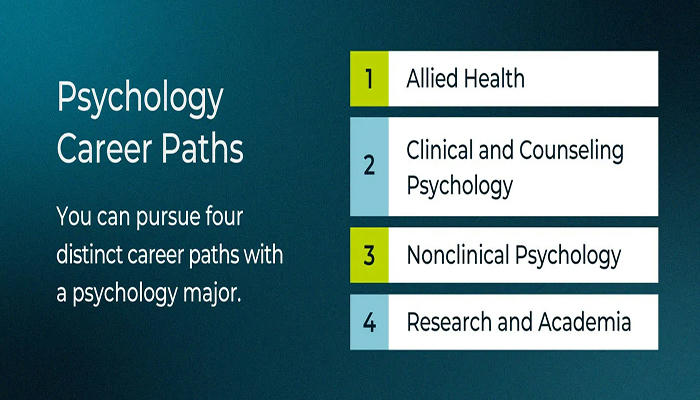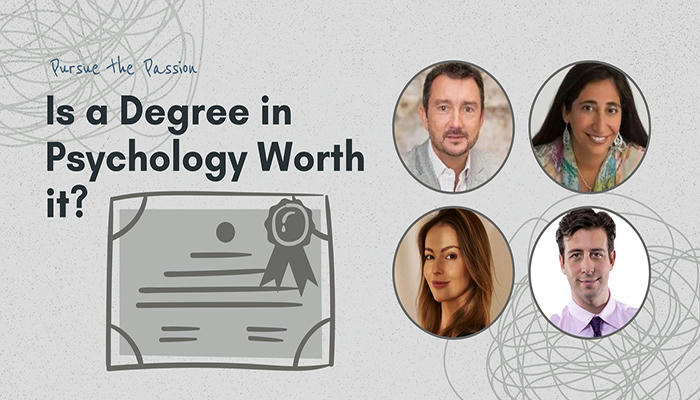Exploring Psychology Degree Programs: Your Gateway to Understanding Human Behavior
In a world where understanding human behavior is increasingly vital, psychology offers profound insights into the workings of the mind and its influence on actions. Whether you aspire to become a clinical psychologist, counselor, researcher, or pursue another path within the field, a psychology degree program is the first step toward a fulfilling and impactful career. Choosing the right program is not just about gaining academic knowledge—it’s about unlocking the potential to transform lives, both personally and professionally.

Core Elements of Psychology Degree Programs
1. Foundational Knowledge
Psychology degree programs begin with a strong emphasis on foundational theories and concepts. Students are introduced to key areas such as:
•Cognitive Psychology: Understanding thought processes, memory, and decision-making.
•Developmental Psychology: Exploring human growth and behavior across the lifespan.
•Abnormal Psychology: Studying mental health disorders and their treatment.
This foundational knowledge provides a comprehensive understanding of human behavior and serves as the backbone for advanced studies and practical applications.
2. Research and Analytical Skills
Beyond theory, psychology programs emphasize the development of research and analytical skills. Students learn to:
•Design and conduct empirical studies.
•Collect and analyze data using statistical methods.
•Interpret findings and apply them to real-world scenarios.
These skills are essential for those pursuing careers in research, academia, or evidence-based practice.
####3. Applied Psychology and Practical Experience
To bridge the gap between theory and practice, psychology programs often include hands-on learning opportunities such as:
•Internships: Gaining experience in clinical, counseling, or organizational settings.
•Supervised Fieldwork: Working directly with clients under the guidance of experienced professionals.
•Laboratory Research: Conducting experiments and contributing to ongoing studies.
These experiences are invaluable for understanding how psychological principles are applied in diverse contexts, from therapy sessions to workplace consulting.

Distinctive Features of Psychology Degree Programs
1. Interdisciplinary Approach
Psychology is inherently interdisciplinary, intersecting with fields such as neuroscience, sociology, education, and even business. Many programs incorporate this approach, offering courses that explore these connections. This broadens students’ perspectives and equips them with a well-rounded understanding of human behavior.
2. Ethical Training
Given the sensitive nature of psychological work, ethics is a cornerstone of psychology education. Students learn to navigate ethical dilemmas and uphold principles such as:
•Confidentiality: Protecting clients’ privacy.
•Informed Consent: Ensuring clients understand and agree to treatment or research participation.
•Ethical Treatment: Respecting the dignity and rights of all individuals.
This training ensures graduates maintain the highest standards of professional conduct.
3. Specialization Options
Many psychology programs offer specialized tracks, allowing students to focus on areas such as:
•Clinical Psychology: Diagnosing and treating mental health disorders.
•Forensic Psychology: Applying psychological principles in legal and criminal justice settings.
•Industrial-Organizational Psychology: Improving workplace dynamics and employee well-being.
These specializations enable students to tailor their education to their career goals, providing deeper expertise in their chosen field.
Success Story: Sarah’s Journey in Psychology
Sarah’s passion for understanding human behavior led her to pursue a psychology degree. After completing her undergraduate studies, she enrolled in a master’s program with a focus on clinical psychology. Through her coursework, she gained in-depth knowledge of therapeutic techniques and honed her research skills.
During her internship at a mental health clinic, Sarah applied her learning to real-world scenarios, helping clients manage anxiety and depression. Today, she is a licensed clinical psychologist, making a significant impact in her community. Sarah’s journey highlights the transformative power of a psychology degree and the opportunities it creates for personal and professional growth.

How to Choose the Right Psychology Degree Program
1. Evaluate the Curriculum
Look for a program that offers a well-rounded curriculum, balancing theoretical knowledge with practical applications. Ensure the courses align with your interests, whether you’re drawn to clinical practice, research, or another area of psychology.
2. Investigate Faculty Expertise
The quality of a program often depends on the expertise of its faculty. Research the backgrounds of instructors, focusing on their experience, research contributions, and areas of specialization. A strong faculty can provide mentorship and open doors to research opportunities.
3. Consider Hands-On Opportunities
Practical experience is crucial in psychology. Choose a program that offers internships, fieldwork, or laboratory research opportunities. These experiences will enhance your understanding of the field and prepare you for your future career.
4. Explore Career Support Services
A program’s career support services can significantly impact your professional trajectory. Look for programs that offer:
•Job placement assistance.
•Networking opportunities with alumni and industry professionals.
•Guidance on further education, such as doctoral programs or certifications.

Conclusion
Embarking on a psychology degree program is more than an academic pursuit—it’s a journey toward understanding the complexities of human behavior and making a meaningful difference in people’s lives. By selecting a program that aligns with your career aspirations and committing to both academic and practical learning, you can pave the way for a rewarding career in psychology.
Whether you’re passionate about clinical practice, research, or another area within the field, a psychology degree is your gateway to unlocking the potential to transform lives and contribute to a deeper understanding of the human experience. Start your journey today and take the first step toward a fulfilling career in psychology!
